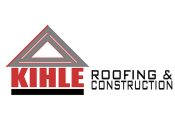Having your home damaged due to a storm can be incredibly upsetting. In addition to trying to repair the damage and assess any insurance claims, you also need to find someone reputable who can fix the problem for you – like a Wichita roofing contractor. But how do you know which one is right for you? If this process feels overwhelming or confusing – don’t worry. This guide outlines what you need to know when hiring a contractor for storm damage repair Wichita to get your home looking and feeling its best again. With the right information and knowing what questions to ask, you can feel confident in choosing the right professional for your repair job.
The Importance of Hiring a Contractor to Repair Storm Damage on Your Roof
If you want your roof repaired correctly and safely, it’s important to hire a contractor who specializes in storm damage repair. An experienced contractor will be able to identify any underlying problems and make sure the roof is repaired according to building codes. They can also help you file insurance claims and work with your insurance company to cover as much of the repair costs as possible.
Preparing for Hiring a Contractor
With careful preparation, in-depth knowledge of the project scope, and research into contractors’ values and specialties, your project will get off on the right foot. Taking steps to define goals and budgets upfront can save costly delays and rework later on.
Identifying the Scope of the Damage and Assembling a List of Potential Contractors
Identifying the scope of the damage will help you determine how much work needs to be done and what type of contractor is best suited for the job. You should also assemble a list of contractors experienced in storm damage repair. This will help you make an informed decision when selecting the right contractor for your project.
Researching and Verifying Contractor Credentials
After you have a list of potential contractors, it’s important to research and verify each contractor’s credentials. Make sure that they have the necessary licenses, certifications, and insurance policies in place to do the job safely and properly. You should also research their online reviews and ratings from previous customers, as this can give you a better idea of their quality of work and customer service.
Preparing a Budget for the Repair Work
Preparing a budget ahead of time is key. This will help you to determine how much money you are willing to spend on the repair job and allow you to create a realistic timeline. You should also make sure that the contractor is willing to work within your budget and provide an estimate of the repair job before signing any contracts.
Interviewing Contractors
Ask each contractor a series of questions to understand their experience, values, and abilities. This will help ensure you choose a contractor who is the best fit for your project.
Questions to Ask Potential Contractors
What experience do you have with storm damage repair? Storm damage repair can be complicated, so you want to make sure that the contractor is experienced in this type of work.
Are you insured? You should ensure that the contractor has the necessary insurance to cover any accidents or damages.
Do you have any references? Ask for references from previous customers who can vouch for the contractor’s work.
How to Evaluate Contractor Responses
A contractor who takes the time to answer your questions and explain their process in detail is likely to be more experienced and reliable. You should also ensure that the contractor’s values align with yours. A good contractor will be willing to work with you to understand your goals and make sure that the project meets them.
What to Look For in a Contractor’s Portfolio and References
A contractor’s portfolio and references can be an excellent indicator of the quality of their work. Look for a portfolio that showcases a varied range of projects and references that are willing to speak favorably about the contractor’s work.
Evaluating Contractor Proposals
Once you have received bids from contractors, it’s important to compare them side-by-side and evaluate each one carefully. Make sure that the proposals include all the necessary information, such as materials and labor costs, timelines, and payment structure. You should also ask if they offer any guarantees or warranties.
How to Compare Proposals and Determine the Best Value
It’s important to compare the bids on an apples-to-apples basis. Look for the contractor who offers the best value, not necessarily the lowest price. Consider the quality of materials, level of professionalism, and customer service offered by each contractor. The best contractor will be able to provide you with the best value for your money.
Understanding the Differences Between Various Types of Contracts
There are different types of contracts that you should be familiar with before signing on the dotted line. Make sure you understand the difference between various contracts, such as fixed and cost-reimbursement contracts. Understanding the nuances between these contracts will help you make an informed decision.
Identifying Red Flags in Proposals
Make sure you read the proposals carefully and look for any red flags, such as vague language or incomplete information. If something doesn’t make sense or doesn’t seem right, ask questions and get clarification before signing anything.
Managing the Repair Work
Repair work can be extremely time-consuming. Depending on the scope of the damage, you may need to manage the contractors and make sure that they are staying on task and meeting deadlines. Make sure to set realistic expectations and timelines for the repair work.
Setting Expectations and Communication with the Contractor
Establish clear goals and expectations, communicate regularly with the contractor throughout the repair process, and get regular updates. If you notice things taking longer than expected or feel that the work is not progressing as you’d like, communicate your concerns with the contractor and let them know what needs to be done.
Identifying and Addressing Issues That May Arise During the Repair Work
Things don’t always go as planned, so it’s important to address any issues that may arise during the repair process. If you’re not happy with how something is going, bring it up to the contractor and come to an agreement. Be sure to let them know if something doesn’t meet your standards and give them another chance to make it right.
Properly Documenting the Repair Work and Final Inspection
Documentation is key when it comes to repair work. Be sure to get a written record of the project detailing the materials used and labor costs. When the project is complete, conduct a final inspection to make sure that the repair work was done properly and to your satisfaction.
Final recommendations for homeowners dealing with storm damage+CTA
Homeowners dealing with storm damage should take the time to fully research and evaluate prospective contractors. Look for a contractor who offers the best value for your money, has a portfolio of references, and offers guarantees or warranties. It’s also important to set realistic expectations, communicate regularly with the contractor, and properly document the repair work.
Visit http://kihleroofing.com/hail-and-storm-repair for more information.
Name, Address, and Phone
Kihle Roofing,
8181 W. Kellogg Dr., Wichita, KS 67209
(316) 202-6859
Social Account




